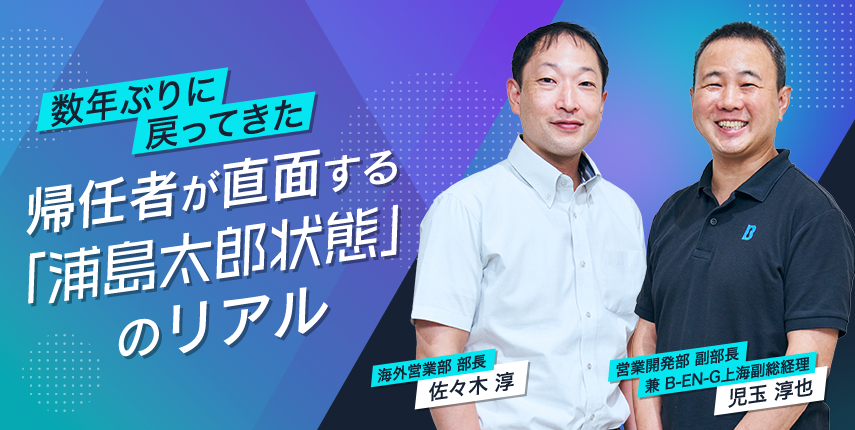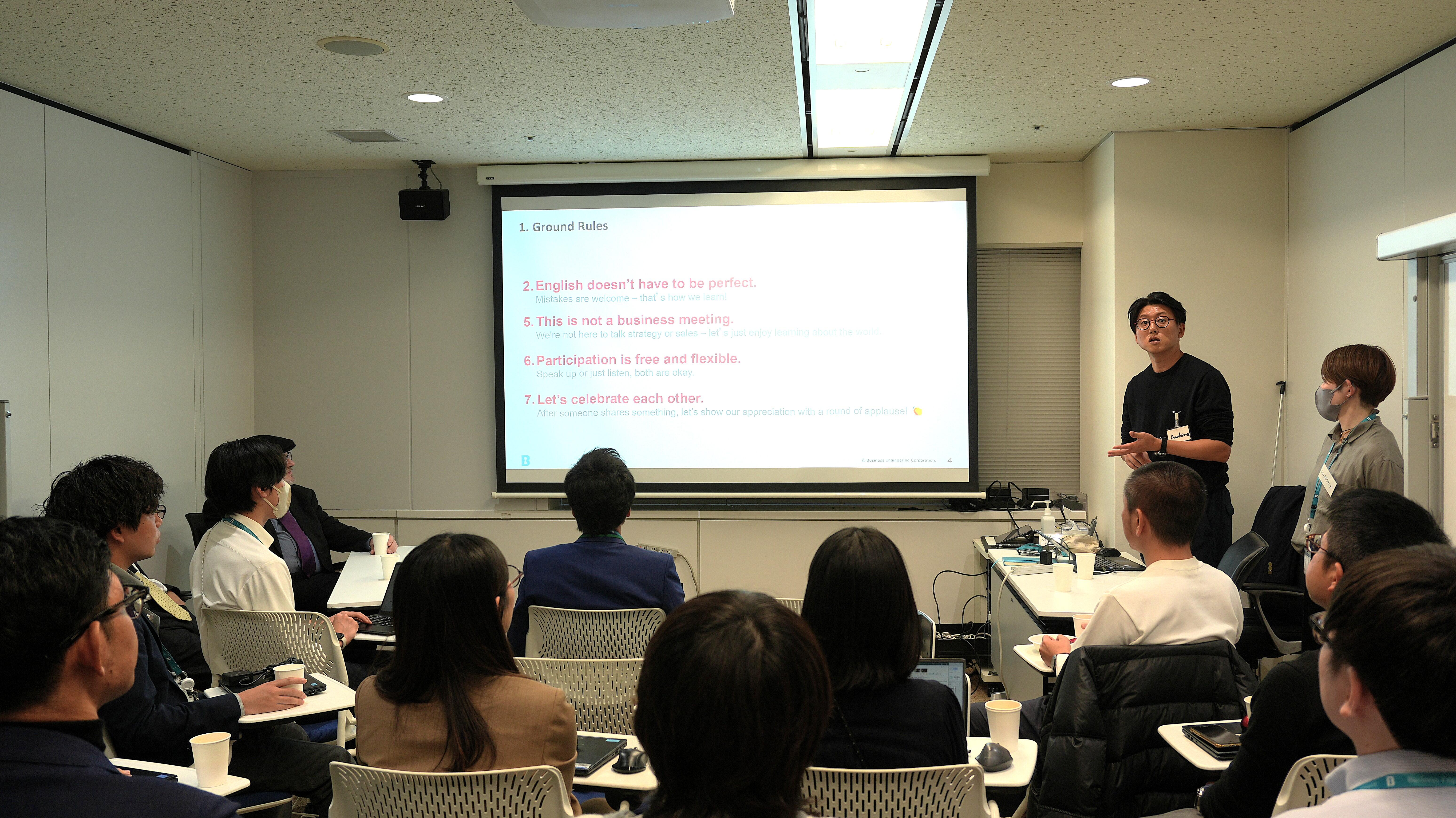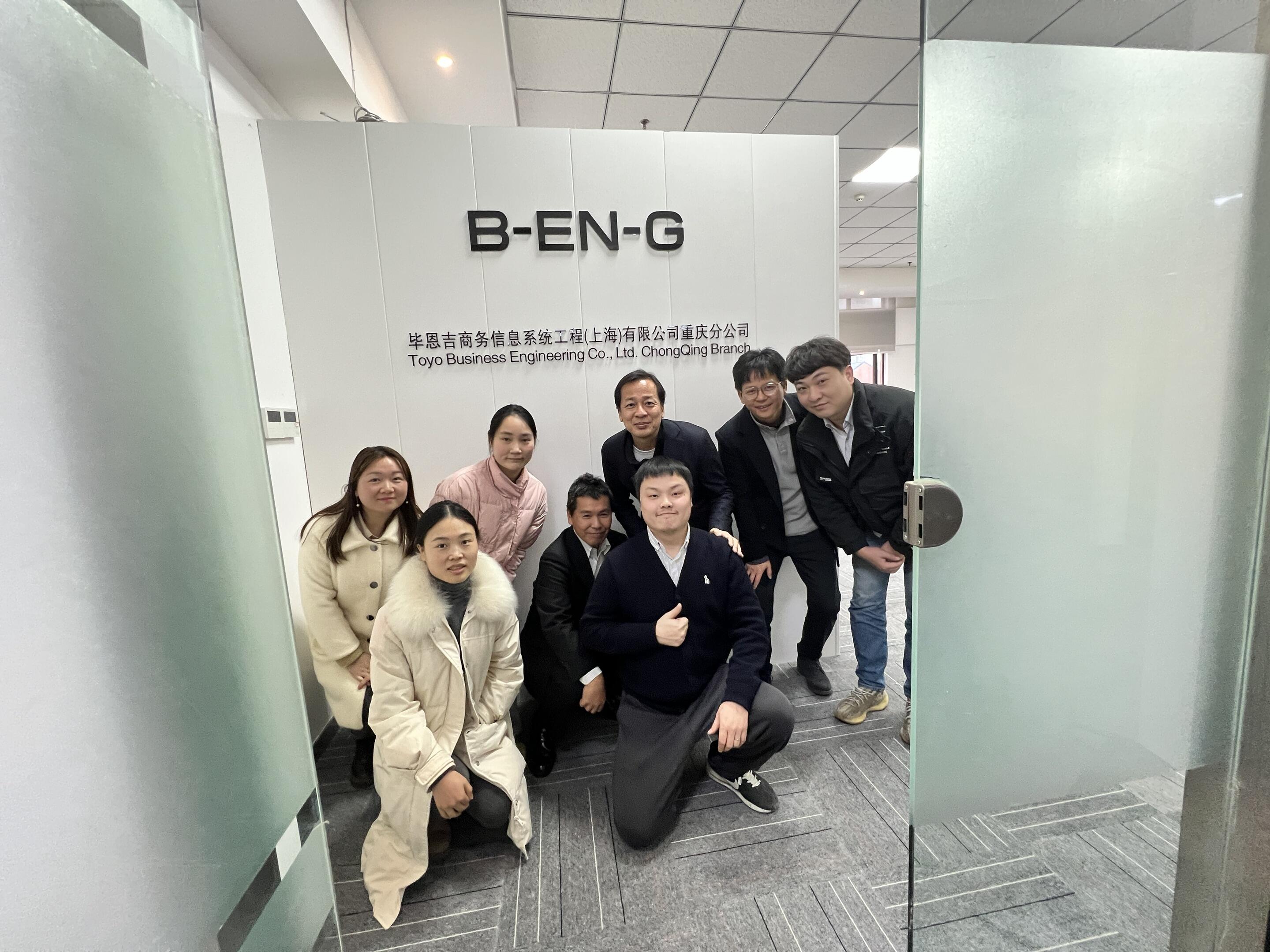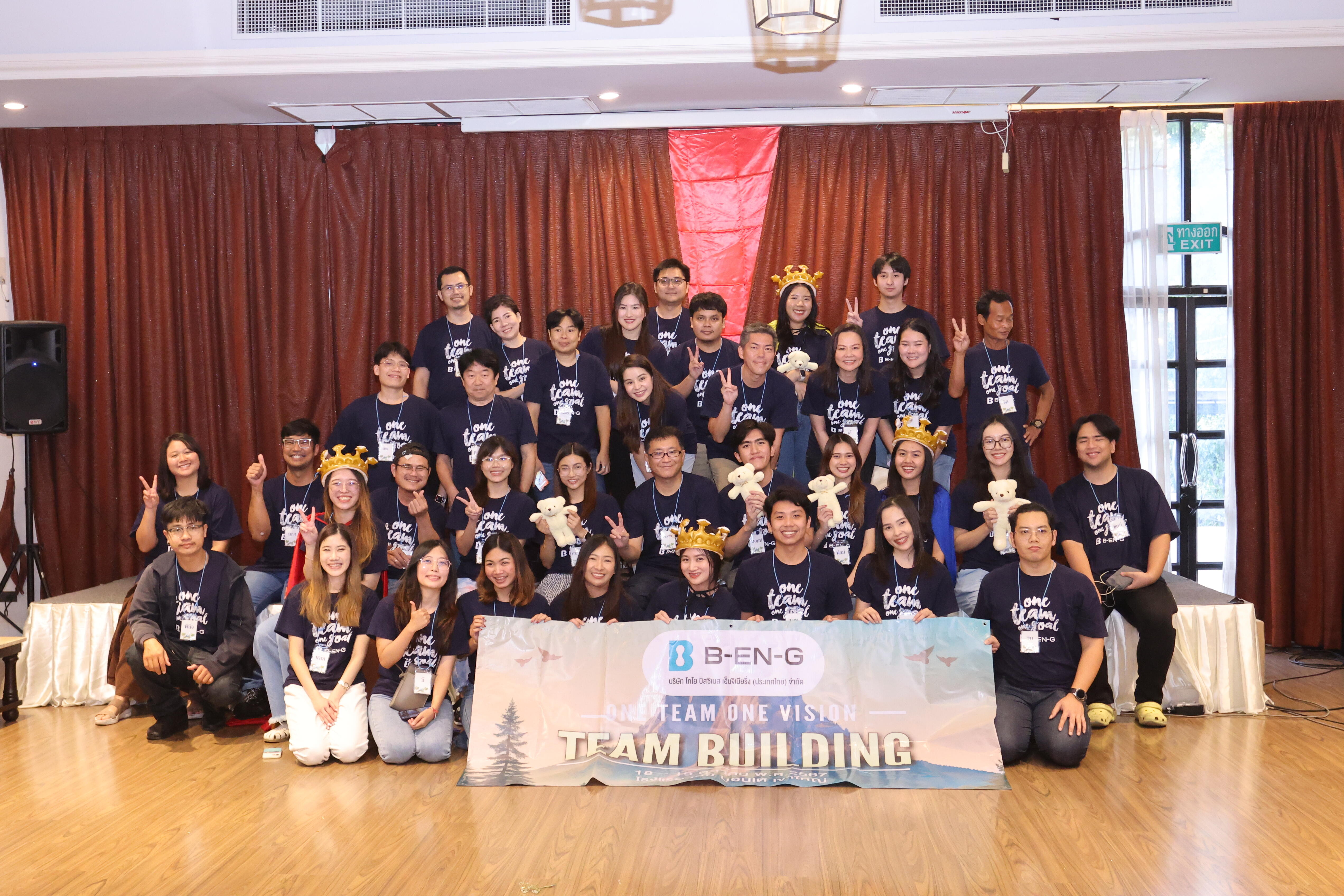For businessmen who have been posted overseas for a long time, Japan is not necessarily a "nostalgic place." In a workplace where human relationships and the office environment have completely changed, they may feel like "Urashima Taro". In this article, we asked Mr. Sasaki and Mr. Kodama, who have both been posted overseas at the Business Engineering (B-EN-G) Group, about their impressions after returning home, what they discovered about the Japanese workplace, and advice for future returnees.

When he returned to the Japanese headquarters, his impression was that "there are more people I don't know"
--You both have been away from Japan for long periods of time. First of all, please tell us your honest thoughts when you returned to Japan.
Jun Sasaki (hereinafter referred to as Mr. Sasaki): When I returned to Japan, the number of employees had increased by about 30% compared to 14 years ago when I was in Japan. There was a lot of turnover, and my honest impression was that there were many members I didn't know.
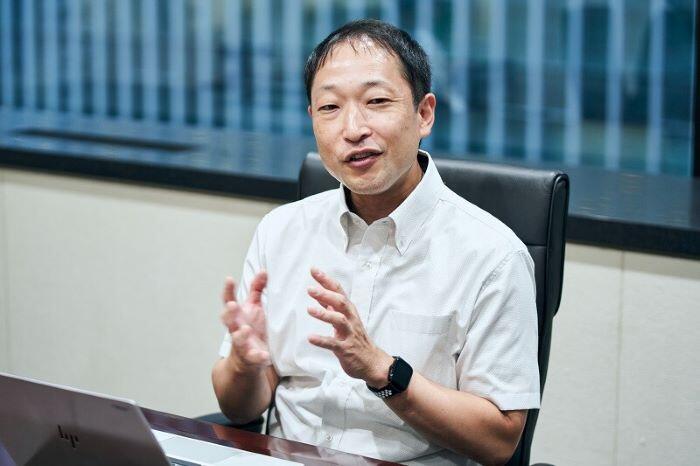
On the other hand, people I knew from the beginning greeted me one after another as soon as I returned to Japan, saying, "I've retired." That means I'd spent a long time overseas, but I felt just like Urashima Taro. I felt a strong sense of loneliness.
Junya Kodama (hereinafter referred to as Mr. Kodama): The office has become nice and clean, and I think "this company has become big," but like Mr. Sasaki, I also felt that there were more people I didn't know. I think this impression has become stronger, especially since the COVID-19 pandemic has led to the spread of teleworking and fewer opportunities to meet face-to-face.
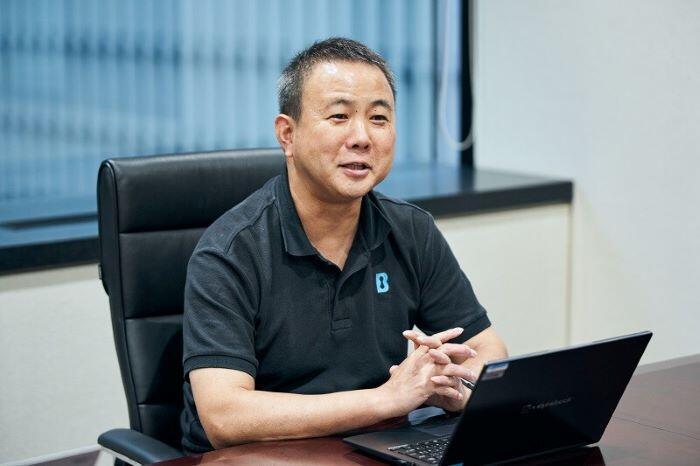
In the midst of all this, the team-building opportunities that the company provides, such as sports tournaments and lunch parties, were valuable opportunities for me. Recently, I participated in futsal and basketball with employees in their second year after graduating from university.
--Even though it's your own company, you still need to start by building relationships.
Sasaki: That's right. In my case, I've been overseas for over 10 years, so I don't really feel like I'm back in Japan. Rather than feeling nostalgic, I feel like, "So this is Japan." It was the same feeling as jumping into a completely new environment.
- After returning to Japan, were there any differences you noticed between your home country and overseas, such as the way you work?
Mr. Sasaki: The way things are done in Japan takes time. When I was the head of a local subsidiary overseas, if I made up my mind to take responsibility, things would be decided in three seconds. However, in Japan, it is essential to coordinate between departments, and even after three meetings, there are times when measures cannot be decided.
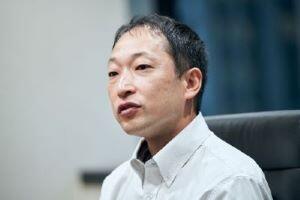
This has its pros and cons. In Japan's slow process, responsibility for decisions is also dispersed through the deliberation process. While it can be difficult to determine who is responsible, as meetings are held, it is often the case that missing perspectives become apparent. I think this is an important process in itself.
Kodama: It's true that the way things are done in Japan sometimes makes me wonder, "Do we really need to go that far?"
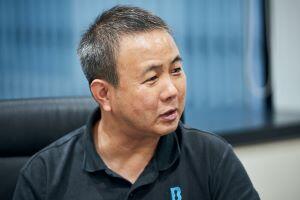
However, I think it is superior in the sense of "reducing and avoiding risks." I am currently working concurrently on a business in China and reviewing the way I do things, and there are many things I am learning from the Japanese way of doing things.
Also, as expected, many people in Japan work overtime. In other countries, it was normal for everyone to go home three minutes after the regular working hours. I got used to an environment where there was no overtime while I was stationed overseas, so it was quite difficult for me to get back into that mindset after I came back to Japan.
--Are there any differences in how well remote work has taken root?
Kodama: There was almost no teleworking in China. In Japan, a hybrid work style that combines remote and in-office working has taken root, so there are times when you can meet the people you want to talk to and times when you can't. Sometimes I feel like it's hard to get into a rhythm.
Sasaki: This is also a cultural difference. It's not that China values face-to-face communication, but rather that they don't trust remote work.
--After returning to Japan, did you have any trouble adjusting to work or life in Japan?
Sasaki: It took me some time to get used to the types of systems used at work and the number of meetings. What numbers do I need to get from which systems, and when and where do I need to report them? Just doing all that without missing anything was a struggle.
Kodama: It's true that new tools were introduced while the employee was overseas. In that respect, if the Japanese headquarters and overseas bases use a common system, it reduces the burden on both the returning employee and the expatriate.
There were also small gaps in everyday life. For example, taxi fares were cheap in China, but if you try to take a taxi in Japan with the same mindset, you may be surprised by the unexpected price.
"I thought I'd thrown away a lot, but..." Japanese homes don't have enough space for all my stuff
--Did you encounter any difficulties when you returned to Japan?
Mr. Sasaki: Choosing a place to live and a school for my children was particularly difficult. In particular, we had a real estate agent show us the house remotely before deciding on it. It's hard to help that Japanese houses tend to be much smaller than those overseas.
When I returned to Japan, I thought I had thrown away a lot of my belongings, but they still didn't fit in my Japanese home. It seems that while living in a space with a lot of storage space, my belongings had been piling up without me realizing it.
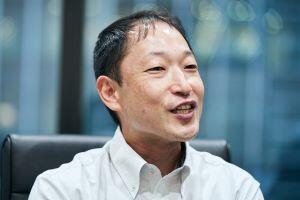
In addition, our child has been in China since he was 0 years old and attended a local international school. My wife worked hard to choose the school he would attend after we returned to Japan. However, he ended up leaving Japan again to study abroad in Southeast Asia. For our child, his current stay in Japan is "irregular," and he will likely feel more natural living abroad.
Kodama: I didn't have much luggage and I didn't need to look for a place to live in Japan, so it wasn't that difficult.
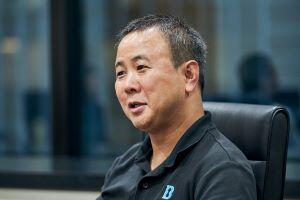
However, there was one thing I was grateful for. My boss made the necessary arrangements and told me about my new department from an early stage. I was able to prepare myself mentally with plenty of time, so I'm very grateful.
Mr. Sasaki: That's right. It's very different from returning to Japan without knowing what department you'll be assigned to. I think it's important to know your duties after returning as soon as possible.
Another big concern when returning to Japan is the handover to your successor. I was able to do it smoothly, but I will be handing over the relationships I have built up over the years and the business I have nurtured.
I've heard that local staff quit when the top management changed, and I remember being very careful when I was assigned to the post. I think it would be better for the successor to take advantage of business trips and other opportunities to get to know the local staff.
--Is there anything else you would like future repatriates to be careful about?
Mr. Sasaki: The immigration procedures for pets are surprisingly difficult. I returned to Japan with my cat that I had in Indonesia, and it took about a year to go through the quarantine procedures, including blood tests. If you have pets, please be careful.
Also, it's best to dispose of furniture and other items locally if possible. If you bring it back to Japan, it will cost money to dispose of it. If you're overseas, you can just leave it there and ask "Do you need this?" and someone will take it away. (laughs)
More people in the company who are involved in overseas business
--Is there anything you gained from your overseas experience that you are able to use in your work after returning to Japan?
Sasaki: I'm in charge of overseas sales, and I think it's a big advantage to be able to explain the local situation in detail to customers. For customers who want to introduce a system overseas, I can explain the infrastructure situation and national systems.
For example, in the case of Indonesia, it is better not to define requirements during Ramadan (the fasting month), or to avoid scheduling meetings on Fridays because prayer times are long. We receive a lot of questions from customers, and we feel that our services are helpful.
Kodama: My values regarding work have changed. Chinese people place great importance on family ties, so I think that has influenced me.
Someone can take your place at work, but no one can take your place as a family. I've been living apart from my wife for over a year due to the COVID-19 lockdown, and that's what I've learned from that experience. Japanese people tend to think of work as their number one priority, but I want to create a workplace where, for example, if someone in their family experiences an unfortunate event, everyone around them can support them.
-As someone who has experience working overseas, is there anything you would like to tell the company?
Kodama: This may be a bit of a minor point, but I would like people to be aware of things like prices and exchange rates, as they can easily diverge from the latest local conditions. If you can travel overseas for a business trip or something, even just a little, I think you will be able to get a feel for the actual situation.
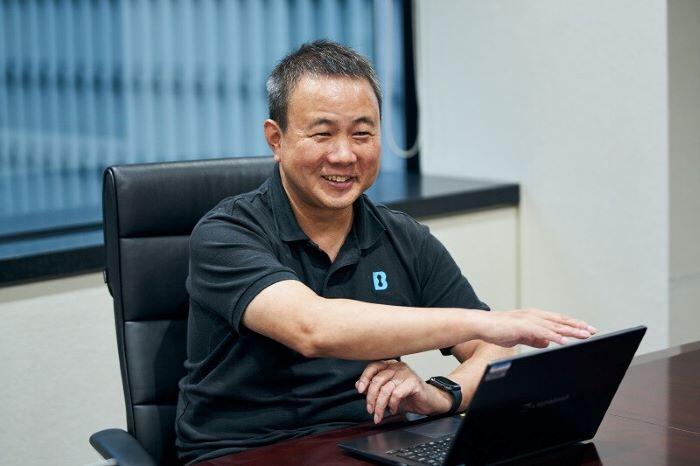
I spoke up and had the regulations regarding allowances and the like revised, but I would like them to be more proactive in making efforts to get a feel for the local situation firsthand.
Mr. Sasaki: I think that "everyone should have the opportunity to experience being the head of an overseas local subsidiary at least once." This is not a joke, but it was such a valuable experience. I think there are certain manners that can only be acquired in an environment where "if you don't move, nothing will move."
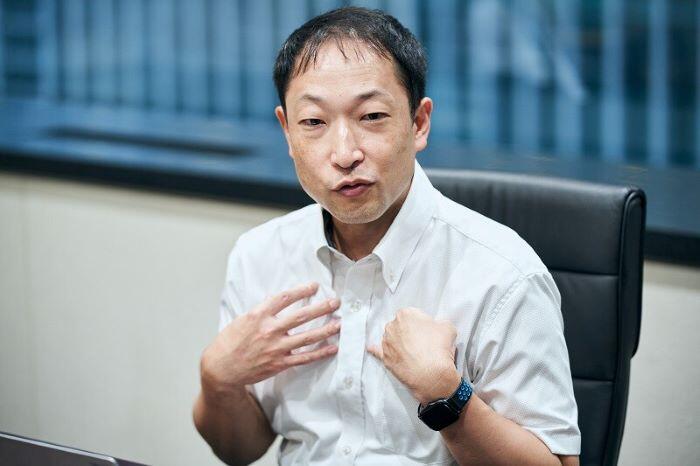
In large organizations, it is easy to find a situation where "everyone is aware of the problem, but no one takes action." By acquiring a managerial perspective overseas, I think you will be able to take the initiative and "connect with more profits and customer and employee satisfaction" without being confined to your own role.
Kodama: Also, after returning to Japan, I realized that there aren't that many people in Japan who are interested in overseas business. There are people who want to go on business trips, but only a handful of people want to be stationed overseas. There seems to be a perception that "overseas business is something that only a few people in a company do."
I want people to become more interested in overseas business, get involved, and enjoy its possibilities. This is my hidden mission that I secretly want to "enlighten."
As Mr. Sasaki said, I would like many employees to have the experience of heading up local subsidiaries, but there are limited seats available, so if the company could create mechanisms and systems that increase the number of people "involved" in overseas business, even if it takes the form of long-term business trips or training, I think it would be beneficial for both repatriates and expatriates.
(Text: Kyodo News Digital / Photo: Taira Tairadate)
*This article is current as of August 2024.
